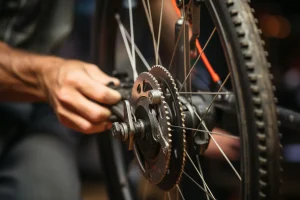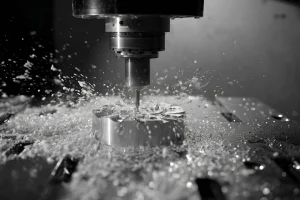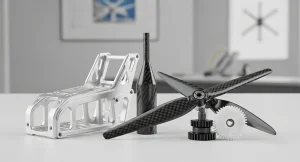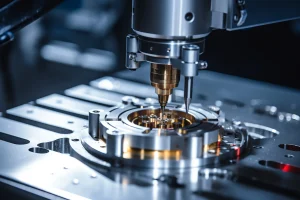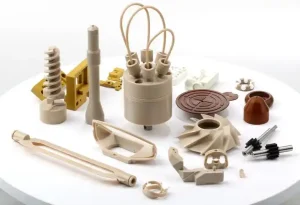In the ever-evolving landscape of manufacturing, the role of CNC (Computer Numerical Control) automation has become indispensable. From precision parts for aerospace to intricate components for medical devices, CNC automation has revolutionized the way we produce and process materials. But how about the parts processed by CNC automation? This article delves into the basics of CNC machining, the current market scenario, technological advancements, and the unique value proposition offered by Rapidefficient in the world of numerical control processing.
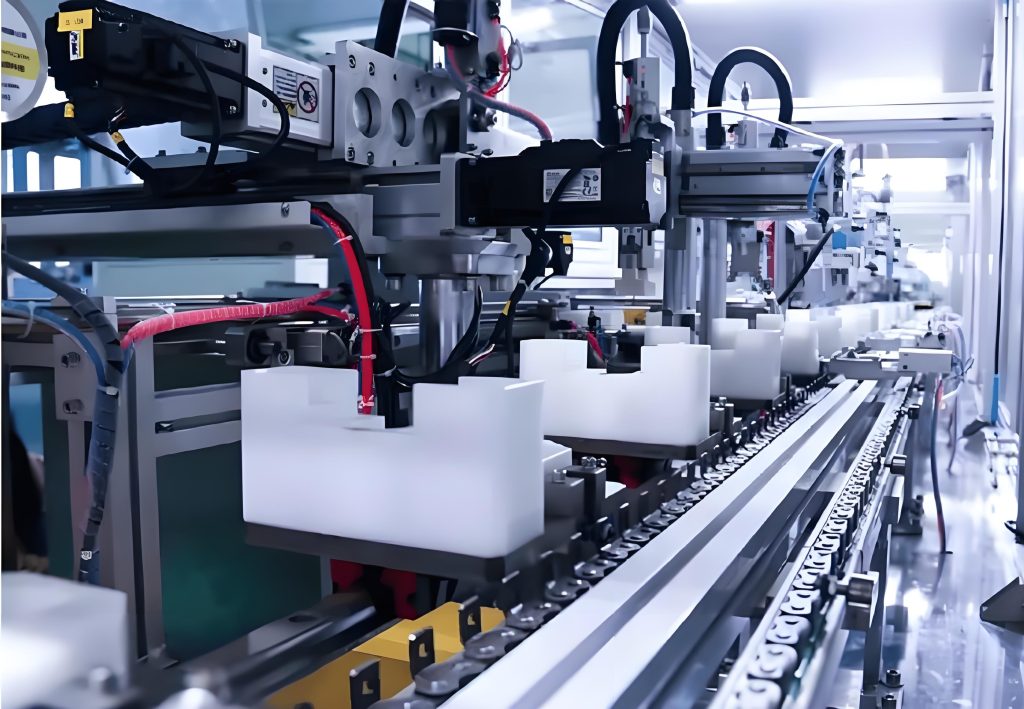
The Basics of CNC Machining
CNC machining is a subtractive manufacturing process that involves the use of computer-controlled tools to remove material from a workpiece, creating a desired shape or part. Unlike traditional machining methods, which rely heavily on manual operation and skill, CNC machines use software to translate design data into precise machine instructions. This allows for unparalleled accuracy, repeatability, and efficiency in part production.
The core components of a typical CNC machine include:
CNC Controller: This is the brain of the operation, responsible for interpreting and executing the G-code (a programming language for CNC machines) that dictates the movement of the cutting tools.
Drive System: This translates the electrical signals from the controller into mechanical motion, moving the spindle, workpiece, and other components as required.
Tooling: The cutting tools used in the process, such as drills, mills, and lathes, are precision-engineered to meet the specifications of the part being produced.
Workholding: Devices that secure the workpiece during the machining process, ensuring stability and preventing movement that could compromise accuracy.
Market Scenario of CNC Automation
The global market for CNC machines is thriving, driven by a combination of factors including technological advancements, increasing demand for precision parts, and the ongoing shift towards automation in manufacturing. According to recent market research, the CNC machine tools market is projected to grow at a significant rate over the next few years, fueled by the adoption of Industry 4.0 principles and the integration of IoT, AI, and big data analytics.
One of the key trends shaping the market is the increasing demand for multi-axis and multi-tasking machines. These advanced CNC systems can perform complex machining operations in a single setup, reducing cycle times and improving overall productivity. Additionally, the rise of additive manufacturing (3D printing) has complemented rather than competed with CNC machining, creating hybrid manufacturing processes that leverage the strengths of both technologies.
Technological Innovations in CNC Automation
The world of CNC automation is constantly evolving, with new technologies and innovations emerging to enhance the capabilities and efficiency of these machines. Here are some of the most notable advancements:
High-Speed Machining: Advances in spindle technology and machine rigidity have enabled CNC machines to operate at much higher speeds, reducing cycle times and improving surface finish.
Five-Axis Machining: Five-axis machines offer unparalleled flexibility and precision, allowing for the production of complex parts with intricate geometries in a single setup.
Tool Path Optimization: Advanced software algorithms now optimize tool paths in real-time, minimizing material waste, reducing wear on cutting tools, and improving overall part quality.
Automation and Integration: The integration of robotics, conveyors, and other automation technologies has transformed CNC shops into highly efficient, lights-out manufacturing environments.
Machine Learning and AI: The application of machine learning and artificial intelligence in CNC machining is still in its infancy, but holds the promise of predictive maintenance, adaptive process control, and even the autonomous optimization of machining parameters.
Rapidefficient’s Value Proposition in the CNC Market
In the crowded landscape of CNC machining service providers, Rapidefficient stands out for its commitment to quality, innovation, and customer satisfaction. With years of experience in the industry, Rapidefficient has honed its expertise in precision CNC aluminum processing, delivering top-notch parts and components to customers across a wide range of industries.
Here are some of the key factors that set Rapidefficient apart:
Precision and Accuracy: Rapidefficient’s state-of-the-art CNC machines and experienced technicians ensure unparalleled precision and accuracy in part production. From tight tolerance machining to complex surface finishes, Rapidefficient delivers parts that meet or exceed customer specifications.
Fast Turnaround Times: In today’s fast-paced manufacturing environment, time is of the essence. Rapidefficient’s efficient processes and streamlined workflows allow for quick turnaround times, ensuring that customers receive their parts when they need them.
Customizable Solutions: Recognizing that no two projects are alike, Rapidefficient offers customizable solutions tailored to the unique needs of each customer. From prototype development to full-scale production, Rapidefficient provides the flexibility and support required to bring projects to life.
Competitive Pricing: Without compromising on quality, Rapidefficient offers competitive pricing that makes precision CNC machining accessible to a wider range of customers.
Excellent Customer Service: Rapidefficient’s dedicated customer service team is always available to answer questions, provide technical support, and ensure that customers are satisfied with their experience.
The Quality of Parts Processed by CNC Automation
The quality of parts processed by CNC automation is unparalleled, thanks to the precision, accuracy, and repeatability of these machines. Here are some of the key benefits of CNC-machined parts:
Precision and Accuracy: CNC machines can achieve tolerances as tight as ±0.001 inches, ensuring that parts fit together perfectly and function as intended.
Surface Finish: With the right cutting tools and parameters, CNC machines can produce parts with a smooth, polished surface finish that requires minimal or no post-processing.
Material Efficiency: CNC machining minimizes material waste, as only the necessary material is removed from the workpiece. This not only reduces costs but also contributes to environmental sustainability.
Design Flexibility: CNC machines can produce parts with complex geometries and intricate features, enabling designers to push the boundaries of creativity and innovation.
Scalability: From small prototype parts to large-scale production runs, CNC machines can scale to meet the needs of any project.
Applications of CNC-Machined Parts
The versatility and precision of CNC-machined parts make them ideal for a wide range of applications across various industries. Here are some examples:
Aerospace: Precision parts for aircraft engines, landing gear, and other critical components are often produced using CNC machining.
Medical: From surgical instruments to prosthetics, CNC-machined parts play a crucial role in the medical industry.
Automotive: Engine components, transmission parts, and other critical automotive systems rely on the precision and durability of CNC-machined parts.
Electronics: CNC machines are used to produce housings, brackets, and other components for electronic devices.
Defense: Military hardware and equipment often require precision-machined parts to ensure reliability and performance in extreme conditions.
The Future of CNC Automation
Looking ahead, the future of CNC automation is bright. With ongoing advancements in technology, machine learning, and automation, we can expect to see even greater levels of precision, efficiency, and flexibility in CNC machining. Here are some trends that are likely to shape the future of the industry:
Greater Integration: CNC machines will become more integrated with other manufacturing technologies, such as additive manufacturing and robotics, creating hybrid manufacturing systems that optimize production processes.
Enhanced Connectivity: The increasing adoption of IoT technologies will enable CNC machines to communicate with each other and with other systems in the manufacturing environment, enabling real-time monitoring, predictive maintenance, and adaptive process control.
Greater Customization: As customers demand more personalized and customized products, CNC machining service providers will need to offer greater levels of customization and flexibility to meet these needs.
Sustainability: Manufacturers will increasingly prioritize sustainability in their production processes, driving the adoption of more eco-friendly materials, energy-efficient machines, and waste-reduction strategies.
Conclusion and Recommendation
In conclusion, the parts processed by CNC automation offer a combination of precision, accuracy, and efficiency that is unmatched by traditional manufacturing methods. As the industry continues to evolve, we can expect to see even greater advancements in technology, efficiency, and customization.
For those looking for a reliable and experienced CNC machining service provider, Rapidefficient stands out as a leader in the field of precision CNC aluminum processing. With its commitment to quality, innovation, and customer satisfaction, Rapidefficient is well-equipped to meet the needs of customers across a wide range of industries.
To learn more about Rapidefficient’s services and capabilities, visit their website or contact them directly to discuss your project needs. With Rapidefficient, you can trust that your parts will be produced with the highest level of precision and quality, delivered on time, and within budget.

